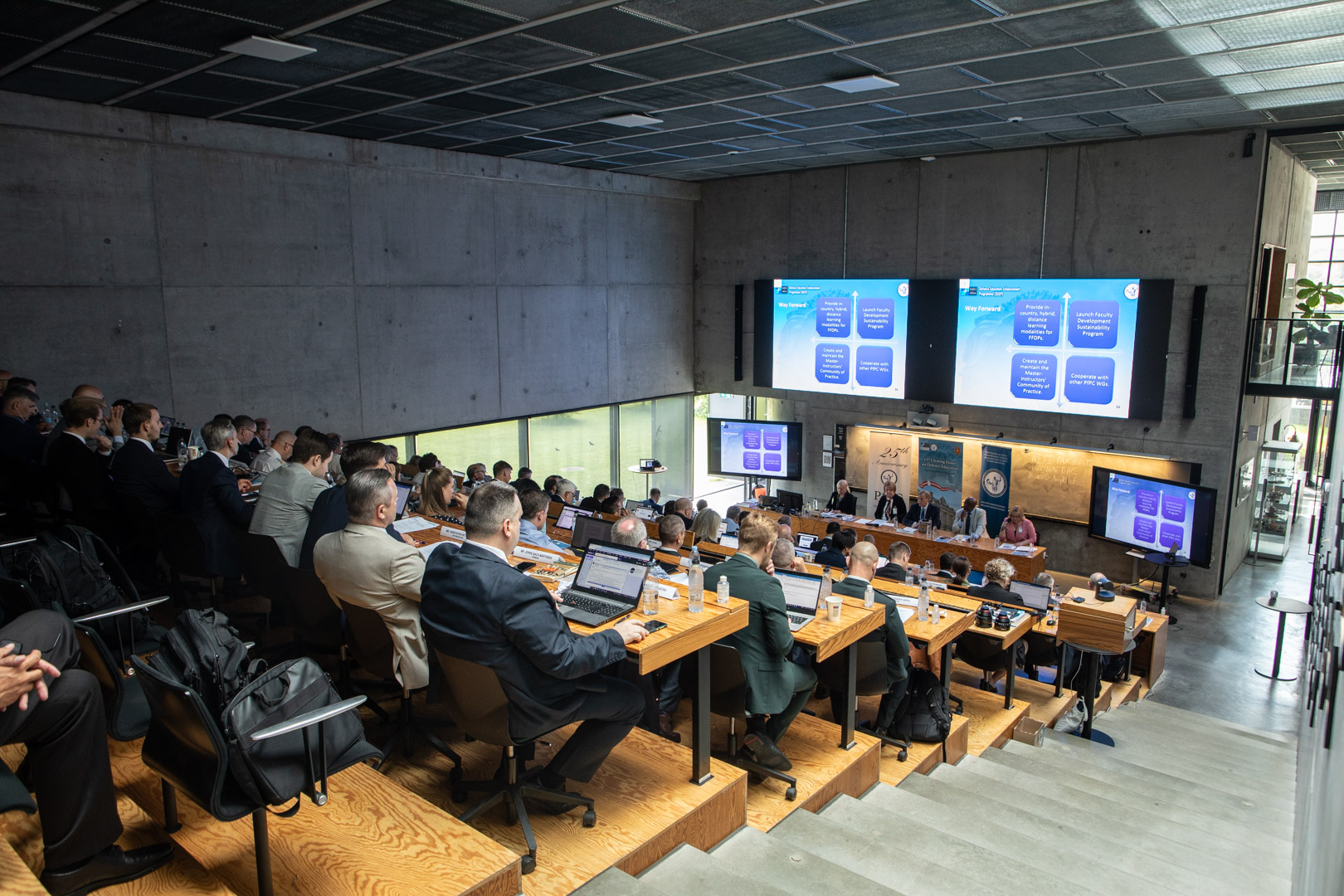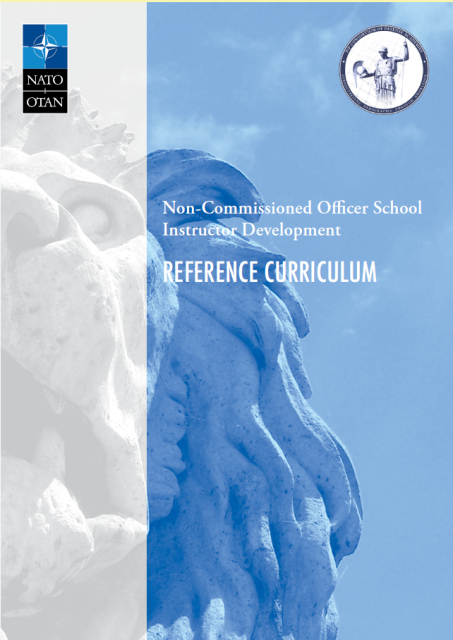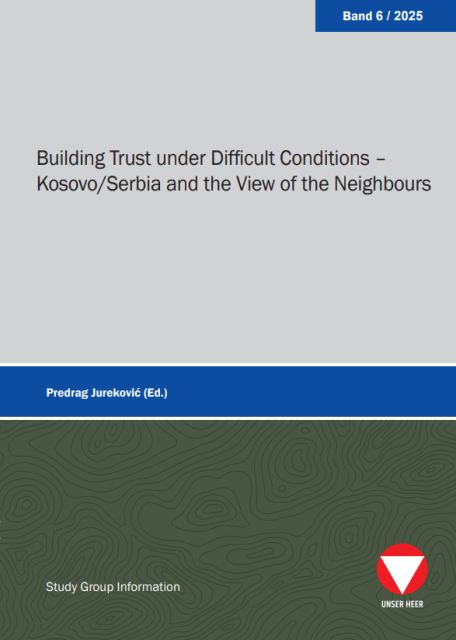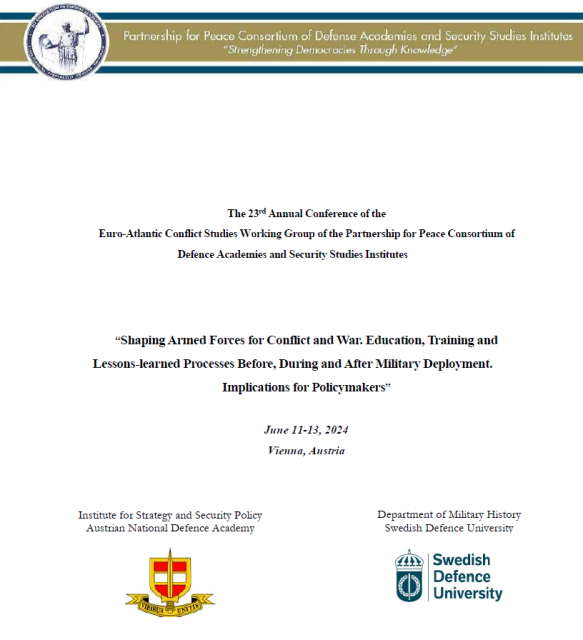
Vienna, Austria - The PfP Consortium of Defense Academies and Security Studies Institutes held the 23th Annual Conference of the Conflict Studies Working Group from 11 to 13 June, 2024. Organized by the Institute for Strategy and Security Policy of the Austrian National Defense Academy, together with the Department of Military History and Social Sciences of the Swedish Defence University, the conference addressed the topic: “Shaping Armed Forces for Conflict and War. Education, Training, and Lessons-Learned Processes before, during and after Military Deployment. Implications for Policy Makers”.
The conference gathered 40 military historians from 21 countries who presented 23 academic research papers. Discussions delved into the dual aspects of historical and contemporary relevance in shaping armed forces for conflict and war. Specific attention was paid to the educational, training, and lessons-learned processes surrounding military deployments, addressing their impacts before, during, and after operations. The insights derived from these discussions carry significant implications for policymakers engaged in strategic decision-making within defense and security contexts.
The conference focused on the evolving landscape of military training, education, and operational strategies in response to dynamic geopolitical changes. Emphasizing the need for adaptability, the event highlighted how armed forces must continuously adjust to meet new challenges. Discussions centered on the impact of recent war experiences on military doctrines, combat procedures, and technological advancements. Key themes included optimizing soldier training, integrating lessons learned into operations, and preparing personnel both physically and psychologically for future missions.
The conference provided a platform for participants to draw insights from historical contexts, applying them to contemporary military and political decision-making. It stressed the importance of informed analysis and strategic readiness in effectively navigating today’s complex global security environment.
The group’s co-chairs outlined the priorities and action agenda for the forthcoming period, emphasizing the growing relevance of CSWG activities within the Partnership for Peace Consortium. The representatives of the co-organizing institutions from Austria and Sweden expressed their appreciation for participants’ continuous interest and engagement in CSWG’s activities, as reflected in its diverse international representation, and in the substantive topics under discussion. They emphasized that such scholarly gatherings play a pivotal role in bolstering inter-institutional cooperation, fostering meaningful dialogue, and strengthening connections in the field of military history research.
Moreover, the conference included the release of the latest publications by the CSWG, which encompassed the proceedings from previous annual conferences: “Special Operations in Past and Present: Implications for Policy Makers”, “From Peace to War, from War to Peace: Conflict Initiation and Termination: Implications for Policy Makers”, and “Information Paper: Shaping Nations for Conflict and War. Propaganda, Disinformation and Strategic Communication. Implications for Policymakers”. As an outcome of this year’s conference, the proceedings will be published in a collective volume, along with an Information Paper containing lessons learned for policy-makers. These publications contribute significantly to advancing the understanding of contemporary military strategy and policy development.
This year marked the 25th anniversary of the PfP Consortium, and the CSWG conference highlighted the crucial role of historical insights in shaping armed forces throughout history. By emphasizing historical insights, the CSWG reaffirmed its commitment to enhancing understanding, education, and strategic decision-making within military contexts, thereby reinforcing the fundamental principles and mission of both the PfP Consortium and NATO.
You can learn more about the Conflict Studies Working Group here.








